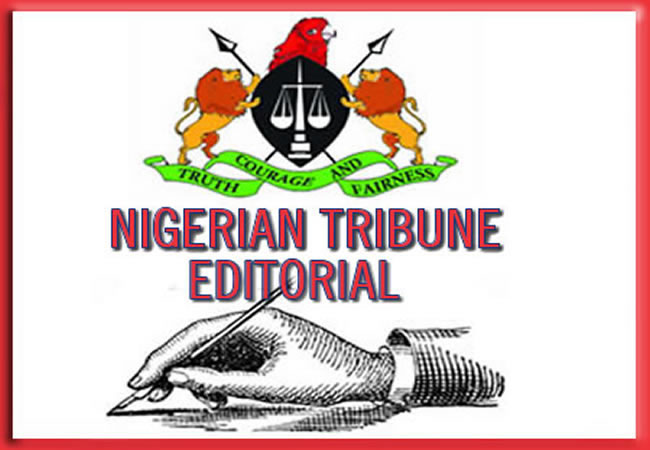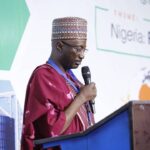ON June 13, the 360 members of the House of Representatives and the 109 members of the Senate will elect the leadership of Nigeria’s 10th National Assembly. Given the rancour that attended the 2023 polls arising from the subpar performance of the Independent National Electoral Commission (INEC), there are millions of Nigerians who will be left unimpressed by the exercise, and not for flimsy reasons. However, given the fact that judicial options are being explored by candidates aggrieved by the outcomes of the elections at various levels, there are ample reasons why the election of the leadership of the National Assembly should concern all Nigerians. For one thing, warts and all, democracy is still the best form of government. For another, elections do have consequences and if the federal lawmakers choose leaders whose worldview, comportment and deportment do not align with the craving of Nigerians for a significantly better quality of life, the country will be adversely affected by it.
Ordinarily, the ruling All Progressives Congress (APC) and the president should have left the choice of National Assembly leadership to the members to express their freewill. However, arising from its experience in 2015 when the outcome of the National Assembly elections failed to reflect the desire of its leadership, the party has been making frantic efforts to ensure a united front this time around. Apparently, the thinking is that the party and the presidency have a vision and if there is an adversarial relationship with the leadership of the National Assembly, the vision will be defeated. Naturally, the party’s moves are undergirded by the developments in the 8th National Assembly when the grossly deficient and unimpressive performance of the government was partly blamed on the frosty relationship between President Muhammadu Buhari and Senate President Bukola Saraki.
Following the APC’s victory at the 2023 polls and as preparations for the inauguration of President Bola Tinubu went underway, the APC leadership officially announced the endorsement of Senator Godswill Akpabio (South-South) as president of the Senate and Barau Jibrin (North-West) as deputy Senate president. In the same vein, it unfolded its choice of Honourable Tajudeen Abbas (North-West) as speaker of the House of Representatives and Honourable Benjamin Kalu from Abia State (South-East) as deputy Speaker. Naturally, the party’s zoning formula sparked protests by other aspirants seeking to occupy the National Assembly top seats, following which the National Working Committee (NWC) of the party said it had taken the agitations into consideration and would soon submit a report to party leaders. Admittedly, the zoning arrangement is not perfect: it leaves the South-East with a lesser role while the North-West has two strong positions. The North-East has none.
In the Green Chamber, a group of dissenting members known as the G7 emerged comprising the deputy Speaker of the House, Ahmed Idris Wase; chairman, Committee on Appropriation, Mukhtar Aliyu Betara; chairman, Committee on Navy, Yusuf Gagdi; House leader, Hassan Doguwa; chairman, Committee on Water Resources, Sada Soli; former chairman, Committee on Internal Security and Intelligence in the 8th Assembly, Aminu Sani Jaji, and Hon Mariam Onuoha. The same scenario has played out in the Senate where senators such as Osita Izunaso (South-East), Abdulaziz Yari (North-East) and Orji Uzor Kalu (South-East) are challenging the party’s choice. But in an apparent bid to stave off the mounting opposition to the zoning arrangement, mindful of the desire of the G7 who had asked the party’s leadership to be prepared for a repeat of 2015 when those endorsed by the party did not emerge as presiding officers of the National Assembly, and against the backdrop of the fact that there are more opposition members than ruling party members in the 10th Green Chamber, President Bola Ahmed Tinubu has been holding talks with lawmakers-elect on the platform of opposition political parties. In the same vein, the adopted candidates have been reaching out to their colleagues, soliciting their support.
Of course, consensus is not a cudgel anywhere in the world. Were that to be the case, Kevin McCarthy would not have needed all of 15 rounds of voting before being elected speaker of the US House of Representatives. Indeed, McCarthy only became speaker after heated exchanges which almost saw fellow Republicans exchanging blows. Still, we think that if only in the interest of long-suffering Nigerians who have had to bear the brunt of failed leadership for ages, members of the ruling party ought to demonstrate cohesion and discipline this time around. Even in the advanced climes, consensus building is not such an anathema; what it requires is broad, sustained engagements. In this regard and given the imperative of geopolitical balancing, the lawmakers would do well not to wilfully truncate the party’s zoning arrangement even if there is a slight tweaking that can still be achieved within the ambit of building consensus. It is largely rooted in the pragmatics of equity.
If the executive arm of government has programmes and policies it wants to push through, it must have a National Assembly that it can work with, or they will fall flat. Nigerians will tolerate no excuses. There must be collaborative efforts among the arms of government. The lawmakers should make this happen.






